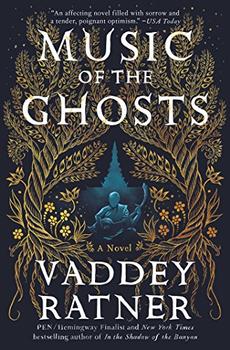September 23rd is the start of Banned Books Week, an annual awareness campaign promoted by the American Library Association and Amnesty International that celebrates the freedom to read, draws attention to banned and challenged books and highlights persecuted individuals. Last year's top ten banned titles consisted mainly of titles written for children and teens that address sex and gender, and two adult titles read in schools: The Kite Runner and To Kill a Mockingbird.
In honor of Banned Books Week, here's part of an interesting infographic of the top banned books in different genres, the reasons why they've been banned in the past, and interesting facts and stats. You can see the full infographic at Invaluable.
 There is a lot of debate as to whether creative writing can be taught or not. Clearly a lot of people think it can be given the growth in creative writing courses. As with most interesting arguments, the truth is probably to be found somewhere in the middle, in that gray area between a polarizing 'yes' or 'no'. Certain elements like voice probably can't be 'taught' as such but they can be refined, given enough time, and the same goes for other aspects of storytelling. In which case, it would seem to make sense to give aspiring writers the fundamental tools they need so that they can learn to use them effectively to improve their writing craft.
There is a lot of debate as to whether creative writing can be taught or not. Clearly a lot of people think it can be given the growth in creative writing courses. As with most interesting arguments, the truth is probably to be found somewhere in the middle, in that gray area between a polarizing 'yes' or 'no'. Certain elements like voice probably can't be 'taught' as such but they can be refined, given enough time, and the same goes for other aspects of storytelling. In which case, it would seem to make sense to give aspiring writers the fundamental tools they need so that they can learn to use them effectively to improve their writing craft.
 I was recently participating in BookBrowse's online book discussion for Vaddey Ratner's excellent novel, Music of the Ghosts, in which the main characters are survivors of the Khmer Rouge. Needless to say, since it discusses the horrors Cambodian citizens endured during the genocide, it contains some pretty intense passages, and one of my fellow posters mentioned finding the subject matter "difficult" and therefore hard to read about. This comment prompted an offline discussion with others regarding books that cover topics that we generally don't want to dwell on, specifically humanity's ability to be unimaginably cruel to others or indifferent to their suffering. The question arose: As readers, do we have an obligation to history to read "difficult" books?
I was recently participating in BookBrowse's online book discussion for Vaddey Ratner's excellent novel, Music of the Ghosts, in which the main characters are survivors of the Khmer Rouge. Needless to say, since it discusses the horrors Cambodian citizens endured during the genocide, it contains some pretty intense passages, and one of my fellow posters mentioned finding the subject matter "difficult" and therefore hard to read about. This comment prompted an offline discussion with others regarding books that cover topics that we generally don't want to dwell on, specifically humanity's ability to be unimaginably cruel to others or indifferent to their suffering. The question arose: As readers, do we have an obligation to history to read "difficult" books?
You're about to curl up with that book you selected from BookBrowse's Editor's Choice, and you have tea brewing in the kitchen. It's time to dive right into another world.
Did you know that when you reemerge, you come back healthier, more empathic, and sharper? Reading also helps you live longer too. A study has shown that those who read for more than 3.5 hours per week are 23% less likely to die than those who do not read books.
Dear Readers,
Last week's election was one of the most contentious the United States has ever seen. And in the aftermath, regardless of how we voted, all of us in the USA are feeling a sense of divide, one that we know is mirrored across much of the world. How do we reach across that chasm to engage in meaningful dialogue? How do we build a bridge between us? To continue that metaphor, how do we find the bricks to build that bridge, made of the solid stuff we have in common? Because we do have so many things in common.
We don't have any good answers about how to find one another again. But we do know one thing: books. All of us at BookBrowse know that books can be a part of the process. You do too. Books are doors through which we can walk to learn about new people, new places, and new ideas. They are mirrors into which we can see ourselves just a little more clearly. And they are maps which can guide us as we get up in the morning, move through our day, go to bed and do it all again the next day. Books are a safe way to try on new perspectives. They are a bold way to articulate what we believe, and to challenge our beliefs.
 If you're a bookworm, or even an aspiring one, one of the greatest joys is having a comfy space to cuddle up with a book for hours undistracted. In a world of non-stop push notifications, diminishing boundaries between work and home, and your already-hectic schedule, squeezing in some quality time to read can be a real challenge. But designating a space in your home specifically for reading can help create that time for you, while also helping you to make better use of your interior space--whether it's a bay window begging for some TLC or an awkward corner of a room that you just don't know how to style.
If you're a bookworm, or even an aspiring one, one of the greatest joys is having a comfy space to cuddle up with a book for hours undistracted. In a world of non-stop push notifications, diminishing boundaries between work and home, and your already-hectic schedule, squeezing in some quality time to read can be a real challenge. But designating a space in your home specifically for reading can help create that time for you, while also helping you to make better use of your interior space--whether it's a bay window begging for some TLC or an awkward corner of a room that you just don't know how to style.